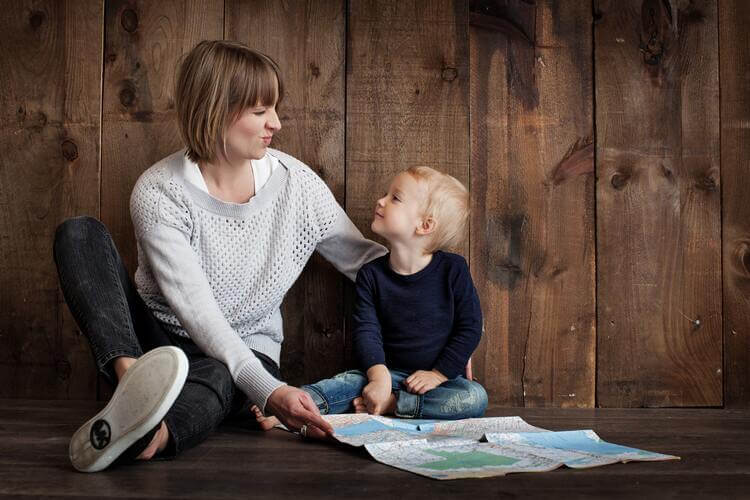Why Does Attachment Style Matter? And What's Yours?
Mar 23, 2022
Perhaps you've heard about attachment styles and wondered why they really matter.
Your attachment style can impact every area of your life.
If you're in a relationship and find yourself chronically dissatisfied, anxious that your partner will leave, or always seem to find problems in your relationship then your attachment style may be part of the reason for this pattern.
If you find yourself a chronic worrier about your finances or that your boss will fire you, then your attachment style may be part of that equation.
If you've pushed partners away in the past or spend money as fast as you make it, no matter how much you make, then understanding your attachment style can help.
Attachment Style Forms Early
When you're a child you learn what you can expect from the world. When you have experiences that make you feel that the world is unsafe, often this expectation will color your future experiences whether it's with money or in your intimate relationships.
This is the core idea behind attachment theory.
In an ideal world, parents provide a safe and secure environment in which a child can explore the world around them. The child knows that they can come back and rely on the parent if they're afraid, and so feels secure in going out of their comfort zone and taking risks. This provides a secure emotional foundation on which the child can rely early on.
At first, the secure emotional foundation exists outside the child - as the parent is the secure foundation on which they can depend. Eventually, however, the child internalizes this security and strength and feels as though they have this security and strength inside of themselves that they can always rely on.

The Four Attachment Styles
Secure Attachment
When you have a secure attachment style you likely had parents who were responsive and caring when you felt afraid.
You likely felt emotionally close to your caregivers and have an easier time creating and maintaining intimate relationships.
You probably feel comfortable having challenging discussions and expressing needs and feelings, even when you're unsure of the outcome of those discussions.
Anxious Attachment
Anxious attachment forms when your caregivers gave inconsistent feedback on your safety and security. So perhaps sometimes you had your needs met, and other times your needs were ignored or brushed aside.
This results in an adult who craves intimacy and questions if the world is really there for them. This can look like questioning whether your intimate partner loves you or developing anxiety or worry about things like parenting or finances.
Sometimes people with an anxious attachment style are described as "needy" as their needs for attention, reassurance, and affection can overwhelm others.
Avoidant Attachment
The caregivers of someone with avoidant attachment are often cold or irresponsible. So the child learns to not depend on others and becomes very independent.
Someone with an avoidant attachment style may actually avoid intimacy or feel that it's overwhelming. They can resist commitment or stonewall their partner when important conversations are brought up.
This is because the person with an avoidant attachment style attempts to protect themselves from disappointment by being overly self-reliant.
Disorganized Attachment
Disorganized attachment is, at a basic level, a mixture of avoidant attachment and anxious attachment. The child may at times feel anxious and crave intimacy while at other times not trust the other person and withdraw into being overly independent and self-reliant.
Disorganized attachment can develop from neglect or abuse as a child where the caregiver was sometimes available, sometimes inconsistent, sometimes unavailable, and sometimes cruel or overbearing.
This mixture results in a child, and ultimately an adult, that feels confusion when it comes to intimacy. They can also feel unsupported or skeptical of other things in life like work relationship or whether their finances will support them.
Why Does Attachment Style Matter?
Ultimately, the way you unconsciously respond to stress in your life creates a template that impacts pretty much every area of your life.
Consider someone with an anxious attachment style who feels fearful that a support network won't ultimately be there for them and seeks constant reassurance.
- This person will feel as though they need constant reassurance from their boss or fear that they're going to get fired.
- They'll worry that their partner doesn't love them if their partner is stressed or temporarily distant.
- They'll fear that their finances will dry up and they'll end up broke and so will either spend money quickly or be a spendthrift.
- They'll fear their children don't love them so they may become a helicopter parent that is over-involved in their child's life.

The Good News Is You're Not Stuck
One thing many people don't realize about attachment style is that you're not stuck with the style you developed as a child.
You can always develop new patterns and develop new neuro-pathways.
This means that there are new opportunities for you to become someone who develops intimacy easily, who is open and trusting, who doesn't tend to overly worry or become anxious about intimate relationships, and who feels secure and comfortable in your own skin.
There are many things you can do to develop a secure attachment style.
These include things like:
- Digging into your underlying beliefs that have motivated you to unconsciously act in ways that are not in your best interest
- Understanding how your past has influenced your current choices, behaviors, and feelings
- Unpacking any trauma or abuse you experienced when you were young
- Create awareness of your current behavior, moods, and choices so that you can make new choices and create new patterns in your life.
Learn About Your Attachment Style
If you've wondered what your attachment style is, or you've been working on moving toward a secure attachment style and wonder if you've made progress in your journey, then consider taking the Attachment Style Quiz.
In the quiz, you'll learn about your current attachment style and how it impacts your work, your finances, your intimate relationships, and your parenting.
You'll also learn more about how to begin moving toward a secure attachment style.
Would you like more 1 on 1 support? Then perhaps Therapy Informed Financial Planning is for the two of you. I invite you to schedule your free 30-minute discovery call today.
Wishing You Healthy Love and Money,
Ed Coambs
MBA, MA, MS, CFP®, CFT-I™, LMFT
Curious About Your Attachment Style?
Take the Attachment Style Quiz now and learn how it impacts your relationships, finances, and life!



